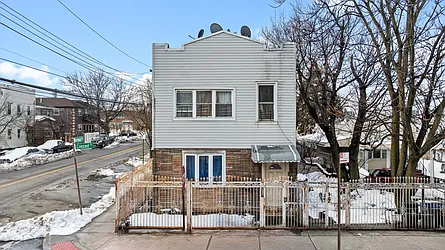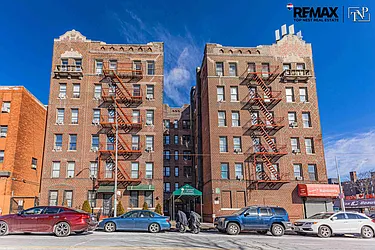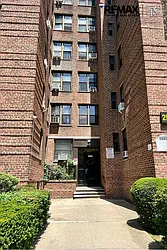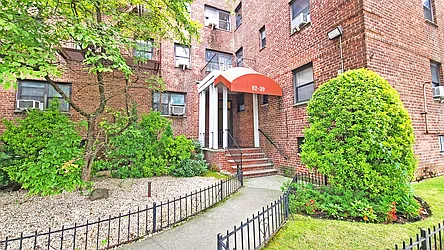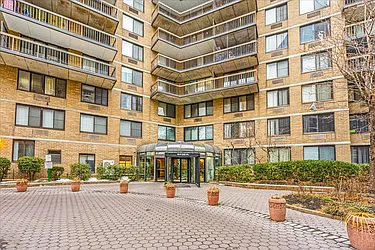In a traditional real estate transaction, one agent represents the buyer and another agent represents the seller. It’s understood that each agent represents the best interests of their individual client. However, there’s an alternative arrangement — known as dual agency — that sometimes arises and can cause complications. If you’re buying or selling a home in New York City, here’s what you should know about dual agency.
Manhattan Homes Under $1.5M on StreetEasy Article continues below
What Is Dual Agency?
In particularly competitive markets like NYC, the buyer and seller in a real estate transaction sometimes end up being represented by the same agent. This arrangement is called dual agency (or sometimes, single agent dual agency), as one agent is representing both clients. According to StreetEasy® analysis, it occurs in roughly 11% of real estate transactions in NYC. Dual agency can have ethical and financial implications for the buyer, seller, and agent. It’s legal in New York — though cautioned against by the New York Department of State — and illegal in eight states: Alaska, Colorado, Florida, Kansas, Maryland, Texas, Vermont, and Wyoming.

When Would Someone Enter Into Dual Agency?
Firstly, neither a buyer nor seller should ever find themselves in a dual agency arrangement without giving prior consent. New York state law requires the agent to obtain both the buyer’s and seller’s full informed consent in writing, via the New York State Disclosure Form for Buyer and Seller.
That said, there are a few scenarios in which buyers and sellers may opt into dual agency, such as:
- Buyers may enter dual agency when their agent is also the listing agent for the property they ultimately buy. If buyers find themselves in this situation, they should be sure their agent is being transparent with them and showing them the listings that best match their needs — not just the listings they’re representing.
- Sellers may enter dual agency because they are highly motivated to close. If their home has been on the market for a long time, or they need to cash out to finance their next purchase, they may be willing to forgo having their listing agent’s full fiduciary duties. This may seem like a raw deal, but according to Melissa Bemis, a StreetEasy Expert and licensed associate real estate broker with The Agency, sellers are often “more focused on getting the closing price they want than the details of dual agency.”
- Buyers may enter into a form of dual agency (often referred to as designated agency) when their agent works at the same brokerage as the listing agent representing the home they’re purchasing. In NYC, where a few large brokerages dominate the market, this occurs quite frequently.
Brooklyn Homes Under $1M on StreetEasy Article continues below
How Dual Agency Impacts an Agent’s Loyalty
To understand the implications of dual agency, consider when a buyer or seller initially hires an agent. At this point, their relationship is defined by undivided loyalty. This is not just agreed upon with a handshake — it’s required by law. The NYS Disclosure Form for Buyer and Seller outlines an agent’s fiduciary duties to their client as “reasonable care, undivided loyalty, confidentiality, full disclosure, obedience and duty to account.” (Read more about what you can expect to sign as an NYC home buyer.)
When a single agent serves both the buyer and seller, they can no longer carry out these fiduciary duties to the full extent. In fact, the aforementioned disclosure form states that “by consenting to the dual agency relationship the buyer and seller are giving up their right to undivided loyalty.” When working with a dual agent, you should regard them as a third party, not as a confidant or advocate on your behalf.

How Dual Agency Changes the Commission Structure
In addition to changing an agent’s loyalty, dual agency also changes an agent’s commission. If the seller has directed their agent to split the offered commission with the agent representing the buyer, the dual agent will get the entire commission — since they’re acting as both the listing agent and the buyer’s agent. As such, listing agents can stand to gain quite a lot in these types of deals. Dual agents also face a conflict of interest between which party they’re trying to get the best deal for, and there’s a risk the agent will simply pursue whichever option makes them the most money.
Should You Enter Into Dual Agency?
StreetEasy® and Zillow® firmly believe in the value of independent representation. As a buyer or seller, you deserve an agent who works for you, and only you. Buyers shouldn’t rely on the listing agent to represent their interests equally — it’s unfair to both sides, and can result in higher costs for buyers. Imagine if the same attorney tried to represent both the plaintiff and the defendant in a legal case. Could they really prioritize the interests of both clients, provide equally sound counsel, and advocate for their respective needs?
Queens Homes Under $1M on StreetEasy Article continues below
We strongly recommend working with a real estate agent who represents solely you, and that this is clearly spelled out in a buyer’s (or seller’s) representation agreement you sign with the agent. If you’re a buyer and don’t yet have your own representation, think twice before having a conversation with a listing agent. Dual agency disclosure violations do occur, and you could end up providing confidential information to the listing agent that makes its way to the seller.
Buyers and sellers need a dedicated agent with relevant expertise on their side, to help them get the best possible deal for their unique situation.
Want More Information? Need a Buyer’s Agent?
Our resource hub for buyers contains helpful information and articles on the value of using a buyer’s agent, including how to find and hire the best one for you. For personalized guidance, reach out to the licensed, complimentary StreetEasy Concierge to learn more about the buying process in NYC, and be connected with a great buyer’s agent from our Experts Network.
StreetEasy is an assumed name of Zillow, Inc. which has a real estate brokerage license in all 50 states and D.C. See real estate licenses. StreetEasy Concierge team members are real estate licensees, however they are not your agents or providing real estate brokerage services on your behalf. StreetEasy does not intend to interfere with any agency agreement you may have with a real estate professional or solicit your business if you are already under contract to purchase or sell property.
















